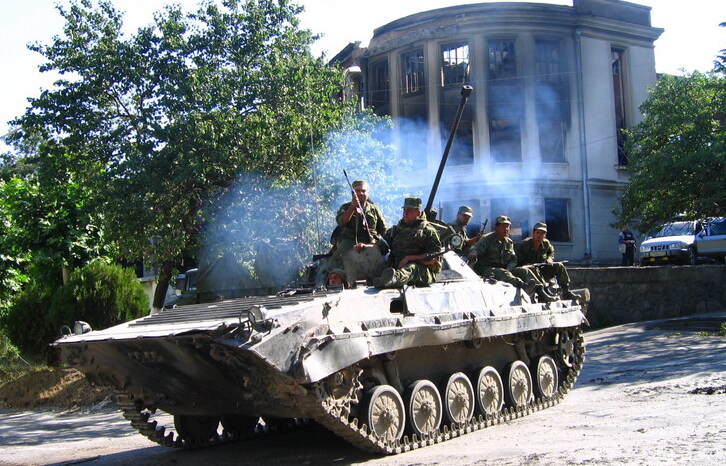Sponsored Content
Forgotten Russian Attack on Georgia: 14 Years After the August War
The 2008 Russo-Georgian War was a military conflict in the South Caucasus between Georgia on the one side and Russia and the internationally unrecognized Russian-backed republics of South Ossetia and Abkhazia on the other. The Caucasus conflict had a major impact on the relationship between the EU and the USA and Russia. At the time, Russia seized the breakaway Georgian republics. 14 years later, Russia has attacked Ukraine and may have similar goals.
 The Russian Federation militarily intervened against Georgia in 2008. / Picture: © Wikimedia Commons; Yana Amelina, CC BY-SA 3.0
The Russian Federation militarily intervened against Georgia in 2008. / Picture: © Wikimedia Commons; Yana Amelina, CC BY-SA 3.0
The 7th of August 2022 marks the 14th anniversary since the Russian Federation militarily intervened in Georgia in 2008.
South Ossetia and Abkhazia had been de facto independent since the early 1990s, although this was not recognized by any sovereign state worldwide until 2008. Russia attacked Georgia militarily and sealed the secession of the regions of South Ossetia and…
or Log In
Fast News Search





